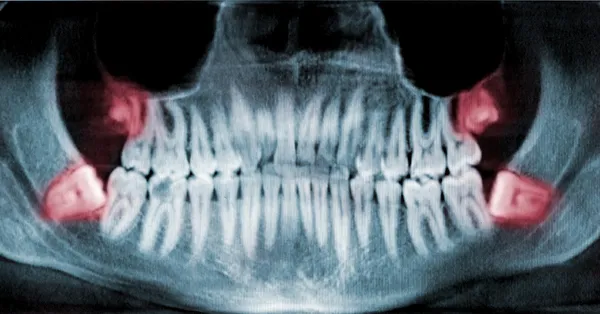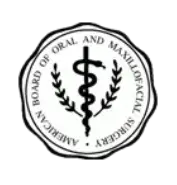When Should I Have my Wisdom Teeth Removed?
By: Consumer Guide to Dentistry
Wisdom teeth removal is a common oral surgery, but as is the case with tonsils, their removal is not always necessary. This begs the obvious question: When should wisdom teeth be removed? Learn more! The Woodview Oral Surgery Team
Wisdom teeth - also referred to as third molars - are typically the last of the permanent teeth to erupt (push their way through the gums). The majority of permanent teeth begin to erupt around the age of six or seven. Most children have 28 of their 32 permanent teeth fully erupted by age 13. The, remaining four (wisdom teeth) tend to erupt between the ages of 17 and 21.
Wisdom teeth removal is a common oral surgery, but as is the case with tonsils, their removal is not always necessary. This begs the obvious question: When should wisdom teeth be removed?
Healthy Wisdom Teeth
Before we jump into when removal of wisdom teeth might be necessary, let's flip the script and begin with when removal is unnecessary.
If your wisdom teeth have erupted fully, are positioned correctly and are not interfering with your bite alignment, it's unlikely your dentist will recommend removal. Healthy wisdom teeth that are not causing any jaw pain or positioned in a way that makes them difficult to clean, do not need to be removed.
Unfortunately it's not always quite so simple, and often wisdom teeth are problematic enough that removal is warranted.
When Removal is Necessary
Although many people who have their wisdom teeth removed tend to be 20 years old or younger, you shouldn't think of removal as an age-specific thing. Rather, timing of removal is tied to whether or not there is a problem with their development/eruption, or whether their presence is causing dental pain or problems in the mouth, such as bite misalignment.
Generally speaking, the following symptoms could be indicative of wisdom tooth issues and warrant removal:
- Tender, red, swollen or bleeding gums at the back of the mouth
- Jaw pain and/or swelling
- Chronic bad breath
- Soft tissue infections at the back of the mouth
- Cysts
- Gum disease
- Tooth decay
- Damage to adjacent molars
A primary concern related to wisdom tooth eruption is spacing. There may not be enough room as the teeth come in, which can cause wisdom teeth to press against the neighboring teeth, causing pain, swelling and potential bite irregularities. This is referred to as impacted wisdom teeth (Impacted teeth may erupt horizontally instead of vertically, preventing them from developing correctly.)
Even if the wisdom teeth are able to erupt without pushing excessively against other teeth, there still may not be adequate space for proper brushing and flossing, leaving you at risk for decay, gum disease and other issues. Swelling of the gum tissue can compound this problem and exacerbate dental concerns.
Although wisdom teeth removal is typically associated with one of the aforementioned issues, there is another instance in which healthy wisdom teeth may also be removed. If you're receiving orthodontic care with braces to help correct bite irregularities, removal of wisdom teeth may help to make room for crowded teeth to be re-aligned and simplify the process.
Trust Your Dentist
Given the common nature of wisdom teeth issues and removal, dentists typically begin monitoring their development with patients around the age of 14. X-rays are used to identify potential complications like impacted teeth, and indicate the need for removal. Your dentist can also monitor the effect on surrounding teeth to determine if there is the potential for spacing issues that could cause discomfort, swelling, etc.
Most dentists recommend removal of wisdom teeth (when warranted) before the teeth have fully developed and their roots have taken hold. This makes their removal easier and can lessen recovery time.
It's important to note that you don't need wisdom teeth in order to have a healthy, balanced smile. Unlike missing other teeth - which can cause bite irregularities and other dental problems - your wisdom teeth do not play an essential role in oral health. That said, your dentist is unlikely to recommend removal if there are no dental concerns associated with your wisdom teeth. Removal after the age of 30 is rare, but your dentist will nonetheless continue to monitor wisdom teeth as latent issues can surface at any time.
Later in life, wisdom teeth can become cracked due to wear, just like every other tooth. If the cracks become large enough to warrant significant tooth restoration, such as a root canal and crown, dentists do not typically recommend repairing the wisdom tooth. In such cases, removal may be recommended.
If you're experiencing pain or tenderness around your back molars, speak with your dentist.
For more information, check out our comprehensive extraction guide.
Source:
https://www.yourdentistryguide.com/news/wisdom-teeth-removed/






5 Stars
based on 48 reviews
5 Stars
based on 15 reviews
5 Stars
based on 11 ratings